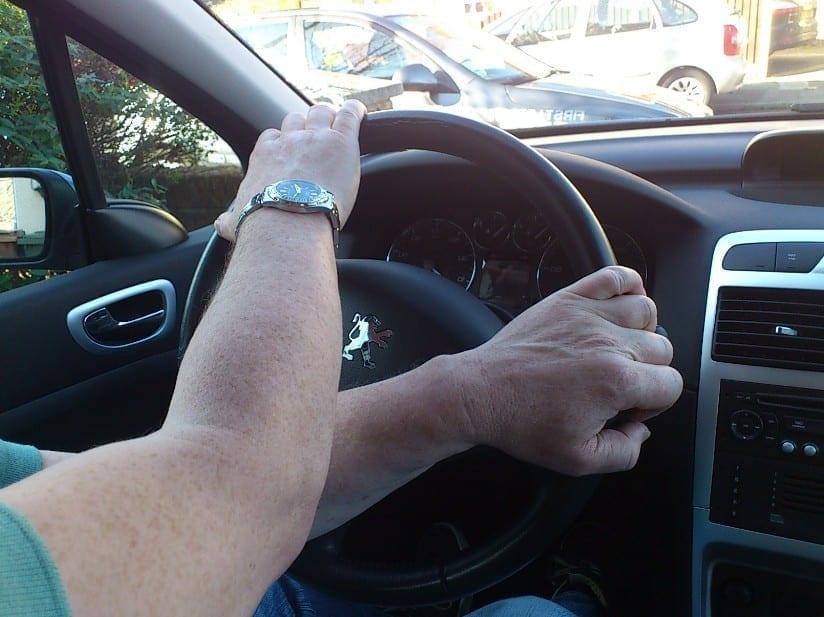
Наиболее распространенные причины возникновения шума при повороте руля
Содержание
Когда транспортное средство неисправно, то, возможно услышать какой-то шум при повороте руля. Обнаружить эти звуки, распознать их и действовать соответственно это важно для предотвращения дальнейшего повреждения и проблем безопасности.
Система рулевого управления автомобилем
Система рулевого управления автомобилем — это система, осуществляющая поворот передних колес для того, чтобы направлять и управлять автомобилем. Через руль, водитель способен перемещать колеса.
Система управления является одним из основных элементов системы безопасности автомобиля, и, в идеале адрес должна быть мягкой и передавать водителю точную тактильную информацию и чувство безопасности.
В настоящее время существует три типа усилителей руля: гидравлический, электро-гидравлический и электрический.
Неисправности в системе рулевого управления, как правило, связаны с износом определенных компонентов, неисправностью гидравлики или с внешними факторами.
Когда система управления неисправна или работает не корректно, могут возникнуть ряд шумов при повороте руля, которые четко показывают тип неисправности.
Наиболее характерные шумы при повороте руля и их причины
Обнаружение и устранение шумов при повороте руля, может быть сложной задачей, даже для профессиональной мастерской. Ниже, представлены наиболее характерные шумы при повороте руля, и возможные причины и неисправности, которые вызывают:
- Рычание при повороте руля. Возможно, что этот эффект происходит из-за слишком низкого уровне в жидкости. Насос — это компонент, которому поручено создать давление в гидравлической системе. Если в контуре не достаточно жидкости, насос, как правило, генерирует пузырьки воздуха и набор шестерен, расположенных в его внутренней части — издает треск, когда приводится в действие.
Этот шум при повороте руля, также может произойти, когда попадает воздух в насос из-за отсутствия герметичности в трассе (повреждения, трещины, пр). - Щелчок при повороте руля. Щелчок происходит из-за подушки безопасности. В этом случае можно заметить, электронные проблемы (например, проблемы в датчике угла поворота рулевого колеса).
- Вибрация при повороте руля. Если рулем передается небольшая вибрация и требуется больше усилий, чем обычно, чтобы манипулировать рулем, то, возможно, это происходит из-за поломки насоса или амортизатора рулевого управления. В этой ситуации ощущается отсутствие точности при повороте руля.
- Стук руля. Если возникает стук, и, как следствие, шум при повороте рулевого колеса — есть вероятность, что в плохом состоянии находятся поддержка поперечных рычагов.
- Хруст при повороте руля. Проблема в шаровой может привести к ухудшению управляемости. Это может привести к возникновению хрустов при повороте руля. Кроме того, эта ситуация доставляет водителю ощущение отсутствия точности в направлении автомобиля, что заставляет корректировать траекторию движения автомобиля.
- Потрескивания при повороте руля. Существует вероятность потрескиваний внутри коробки. Эти шумы при повороте руля, как правило возникают из-за износа внутренних уплотнений.
- Скрип при нажатии на руль с обеих сторон. Может быть, потому, что какая-то полуось или ШРУС находятся в плохом состоянии.
- Гул при повороте руля. Поворот руля, может сопровождаться глухим стуком из района передних амортизаторов. Эта ситуация свидетельствует о возможной аномалии в чашках амортизаторов передних колес.
- Шум при повороте. При выполнении поворота, можно услышать специфический шум. Этот шум часто вызван асимметричным износом шин.
- Трения при повороте руля. Иногда, может возникнуть трение при повороте руля, потому что прокладка, закрепленная на панели, не содержит надлежащей смазки.
- Шум типа “клац” при повороте руля. не оригинальные втулки.
- Стук при нажатии на руль. Существует вероятность возникновения такого шума, при нажатии на руль, в обе стороны. Он возникает по вине защитного кожух сзади руля.
Рекомендации
Некоторые из самых важных советов, чтобы избежать шумов при повороте руля:
- Проверить и исправить, при необходимости, уровень жидкости рулевого управления. При заполнении жидкостью, желательно убедиться в ее чистоте, в соответствии с рекомендациями производителя, для предотвращения попадания в цепь посторонних частиц.
- Проверьте, что нет утечки вдоль цепи. Необходимо обратить особое внимание на места соединения поверхностей коммутационных элементов.
- Мониторинг и смазка элементов руля (подшипники скольжения, маховик, полуоси, ролики и т. д.).
Многие из шумов непосредственно связаны с безопасностью автомобиля. Повышение безопасности дорожного движения имеет решающее значение, поэтому очень важно соблюдать сроки и регламент профилактических работ, рекомендованных производителем.
Вопросы и ответы:
Что за звук при повороте руля? Нужно провести диагностику. Данный эффект может быть следствием неисправности рулевой рейки (износ шестерной пары) или износа рулевых наконечников (трутся о тяги).
Что может стучать при повороте руля на месте? Износился рулевой наконечник, опорный подшипник или неисправности в гидроусилителе. В движении стук появляется от ШРУСов и других элементов шасси.

Один комментарий
VALI
AM O BATAIE LA ROTIREA VOLANULUI STANGA , DREAPTA DOAR IN MERS O LOVITURA SCURTA CA UN POCNET .
AM FACUT VERIFICARI LA MECANICI AM SCHIMBAT FLANSELE DE LA AMORTIZOARE DIN PACATE DEGEABA SUNETUL TOT PERSISTA .
PARE SA DUCA SPRE CASETA DE DIRECTIE DIN SPUSELE MECANICILOR. MASINA ARE APROZIMATIV 40 MII KM .PEUGEOT 3008 E MASINA .
MULTUMESC .